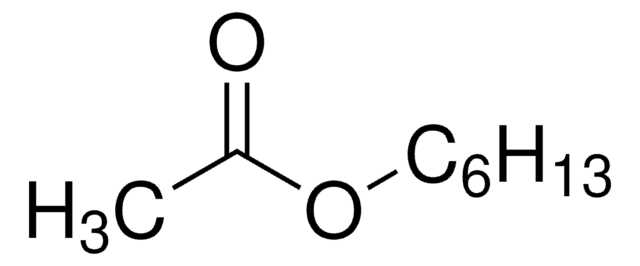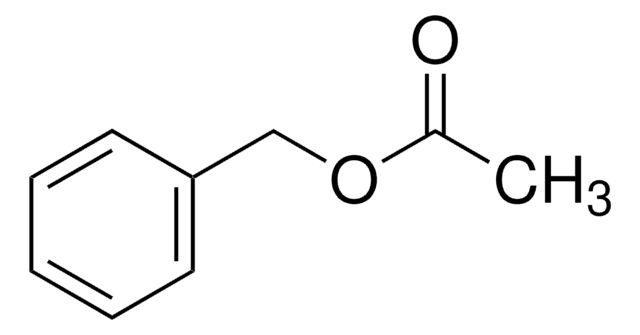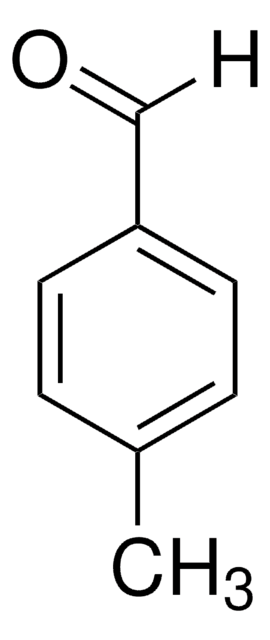W213519
Benzyl acetate
natural, ≥99%, FCC, FG
Synonym(s):
Acetic acid benzyl ester
About This Item
Recommended Products
grade
FG
Halal
Kosher
natural
Quality Level
Agency
meets purity specifications of JECFA
reg. compliance
EU Regulation 1334/2008 & 178/2002
FCC
FDA 21 CFR 117
vapor pressure
23 mmHg ( 110 °C)
Assay
≥99%
autoignition temp.
862 °F
greener alternative product characteristics
Less Hazardous Chemical Syntheses
Use of Renewable Feedstocks
Learn more about the Principles of Green Chemistry.
sustainability
Greener Alternative Product
refractive index
n20/D 1.502 (lit.)
bp
206 °C (lit.)
mp
−51 °C (lit.)
density
1.054 g/mL at 25 °C (lit.)
application(s)
flavors and fragrances
Documentation
see Safety & Documentation for available documents
food allergen
no known allergens
greener alternative category
Organoleptic
fruity; floral; sweet
SMILES string
CC(=O)OCc1ccccc1
InChI
1S/C9H10O2/c1-8(10)11-7-9-5-3-2-4-6-9/h2-6H,7H2,1H3
InChI key
QUKGYYKBILRGFE-UHFFFAOYSA-N
Looking for similar products? Visit Product Comparison Guide
Related Categories
General description
Hazard Statements
Precautionary Statements
Hazard Classifications
Aquatic Chronic 3
Storage Class Code
10 - Combustible liquids
WGK
WGK 1
Flash Point(F)
203.0 °F - closed cup
Flash Point(C)
95 °C - closed cup
Personal Protective Equipment
Choose from one of the most recent versions:
Already Own This Product?
Find documentation for the products that you have recently purchased in the Document Library.
Customers Also Viewed
Our team of scientists has experience in all areas of research including Life Science, Material Science, Chemical Synthesis, Chromatography, Analytical and many others.
Contact Technical Service








